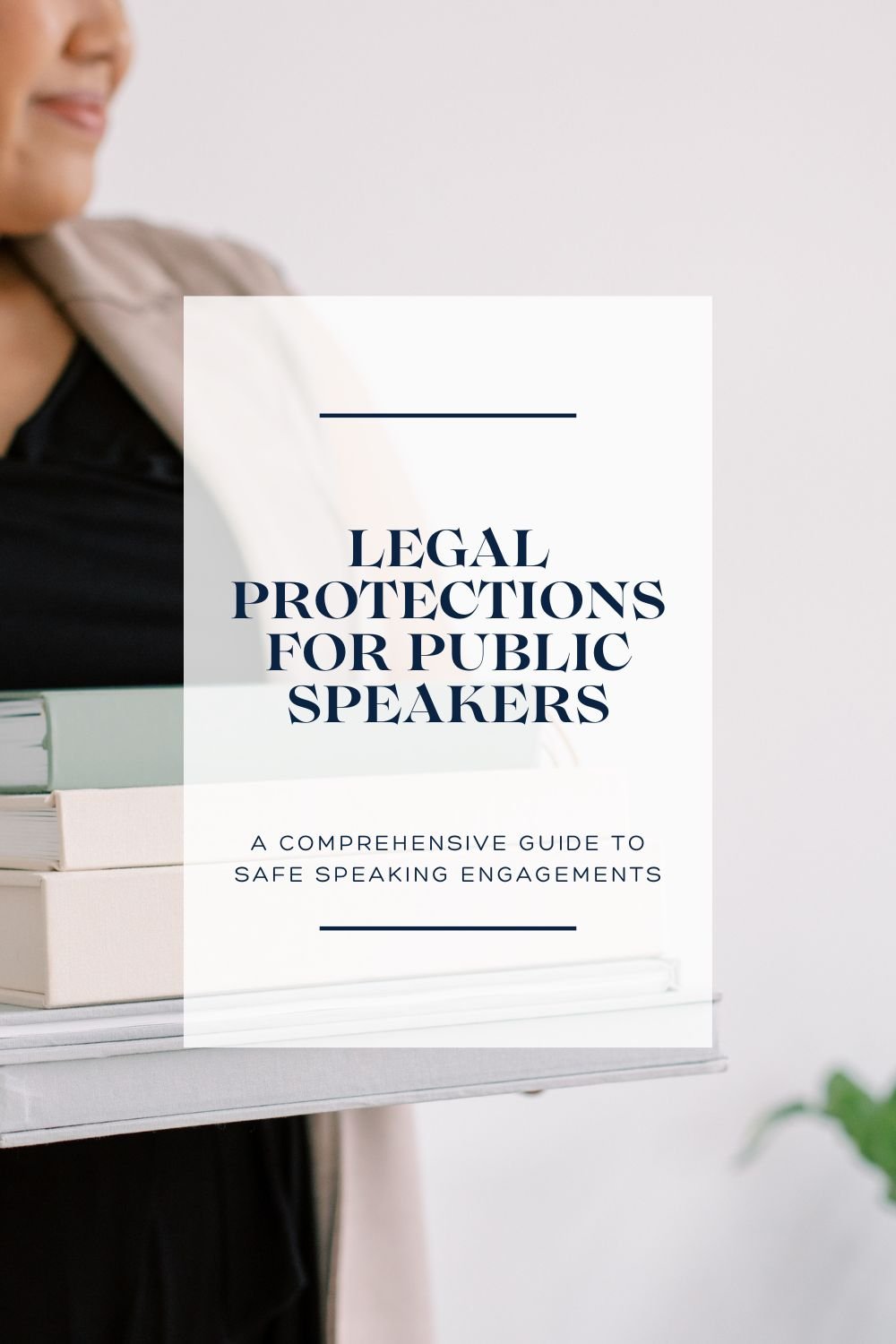The Force Majure Demystified
If you were in business during the pandemic, you are probably already very familiar with the Force Majure contract clause. But if, by some special blessing, it did not come up for your business in the last few years, let me explain why you want to understand it and, definitely, include it in your agreements.
In brief, it’s a legal clause that frees both parties (yay, for protecting you and your clients) from contractual obligations and duties if an extraordinary event prevents one or both of you from performing. If we want to get super technical “Force Majure” is not a doctrine in common law, meaning it is not a rule that if followed, instead it is a handy title for a common contract provision.
The term “force majure” is french for “major force” and that’s exactly what this provision is meant to address. It is to provide coverage in the case of truly unique and unavoidable circumstances.
For example, if you were a wedding photographer who was under contract to provide wedding photos during the early period of Covid-19, your state laws may have actually prevented you from doing so because of the stay-at-home order. If your contract did not have a Force Majure clause, you would have been in breach of contract when you did not show up to take the photos at the specified date, time, and location. Crazy, right?
But, surely, the courts would understand that it was a pandemic, right?
Unfortunately, that’s not how contracts work. Courts look to the parties to include the protections that they intend in the language of the contract itself. In rare cases, a legal doctrine like frustration or impracticability may apply and excuse performance but those cases are very, very rare.
Since we all hope not to see another pandemic any time soon, do you still need a Force Majure clause in your contracts?
Absolutely! Typically, a Force Majure will cover other extraordinary and unforeseen events like natural disasters and human-created catastrophes. This could be everything from the weather to cyber attacks, to large-scale equipment failure, or even armed warfare and terrorism. That might seem farfetched but what if a large-scale protest totally prevented you from performing a contracted service? It can happen.
Keep in mind, though, that the Force Majure is not a get-out-jail-free card. For the Force Majure to apply, the event needs to meet three criteria: 1) Unforeseeable, 2) External, and 3) Unavoidable.
This means that there is no way that a reasonable person could have foreseen that the obstructing event would occur. It also means that neither party can be the cause of the interfering event and that there was no reasonable way to avoid the interference. However, different jurisdictions define these terms differently so check with a local lawyer for your exact circumstances.
How can I use a Force Majure provision in my business agreements?
All of my templates include a Force Majure provision, so that’s an easy button fix. I also have a Force Majure add-on that you can add to existing templates in your business. But, let’s get some general best-use principles explained first.
You want to be as specific as possible in your Force Majure provision. That seems weird because the whole idea is that it covers events that you can’t predict, but determining the types of circumstances that would trigger the clause is best practice and make courts more likely to enforce it.
Standard inclusions are natural disasters including earthquakes, floods, and fires; terrorism and threats of terrorism; civil disorder; riots or revolutions; labor strikes; systemic transportation failure; disease; war; or other “Acts of God.”
You will also want to specify if the Force Majure temporarily relieves the performance of the contractual obligation or if it is a permanent excuse.
Finally, you need to include what happens if the Force Majure provision is triggered. Typically, it will require the impacted party to provide notice to the other party about the obstructing event and their inability to perform. It should also include a remedy or mitigation. Do you reschedule? Is a refund available? Can a replacement service provider be substituted? Would related services be an acceptable substitute?
Love This Info? Check Out Related Articles:
Should you sign a contract containing a Force Majure?
Well, that depends. A Force Majure provision is smart contracting and it is not usually a red flag. But you need to carefully assess the contract in its entirety.
Keep in mind, the beauty of contract law is that it is left up to the parties to decide what should and should not be included in the contract. If any clause or provision feels wrong to you, speak up, and ask for clarification. Asks for edits and don’t sign until the contract represents the agreement that you want.
You should also analyze the Force Majure provision itself. Is it too broad? Does it try to excuse performance for predictable or controllable events? Does it only provide protection to one of the parties? Read carefully and consult your lawyer if you have questions, but in most cases, good contracts will contain Force Majure provisions and it shouldn’t be a reason not to work with that service provider.
My final thoughts are:
Does a coach need a Force Majure provision in their contract? Yes!
Does a photographer need a Force Majure provision in their contract? Yes!
Does a consultant need a Force Majure provision in their contract? Yes!
Does an SEO expert need a Force Majure provision in their contract? Yes!
Does a website designer need a Force Majure provision in their contract? Yes!
Does a graphic designer need a Force Majure provision in their contract? Yes!
Who needs to think about including a Force Majure provision? Just about everyone.
As a little legal fun fact, the “Force Majure” has its origins in the English case of Taylor v. Caldwell. In that case, the parties agreed that Taylor would rent Caldwell’s music hall for four summer concerts. However, shortly before the concert hall burnt down and Taylor tried to sue Caldwell for failing to provide a music hall to them.
THIS ARTICLE IS NOT A SUBSTITUTE FOR LEGAL ADVICE AND IS OFFERED FOR INFORMATIONAL PURPOSES ONLY. EVERY SITUATION IS UNIQUE AND YOU SHOULD CONSULT A LOCAL ATTORNEY FOR ADVICE ON YOUR PARTICULAR CIRCUMSTANCES.





Unravel the world of mastermind groups with a legal twist! Dive into the essentials of intellectual property, payments, and how masterminds differ from group coaching. We'll discuss the must-have legal clauses to ensure you and your participants are protected. A must-read for savvy entrepreneurs gearing up for success!